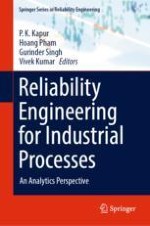2024 | OriginalPaper | Buchkapitel
Considering Multiplicative Noise in a Software Reliability Growth Model Using Stochastic Differential Equation Approach
verfasst von : Kuldeep Chaudhary, Vijay Kumar, Deepansha Kumar, Pradeep Kumar
Erschienen in: Reliability Engineering for Industrial Processes
Verlag: Springer Nature Switzerland
Aktivieren Sie unsere intelligente Suche, um passende Fachinhalte oder Patente zu finden.
Wählen Sie Textabschnitte aus um mit Künstlicher Intelligenz passenden Patente zu finden. powered by
Markieren Sie Textabschnitte, um KI-gestützt weitere passende Inhalte zu finden. powered by
